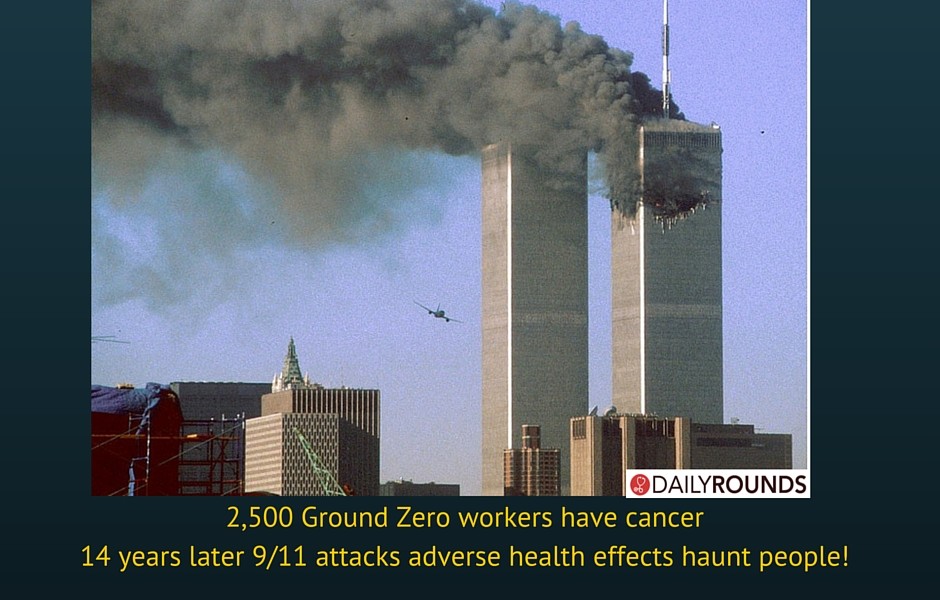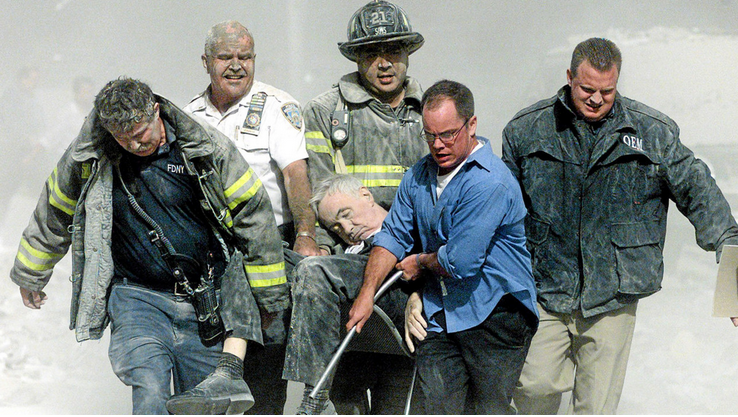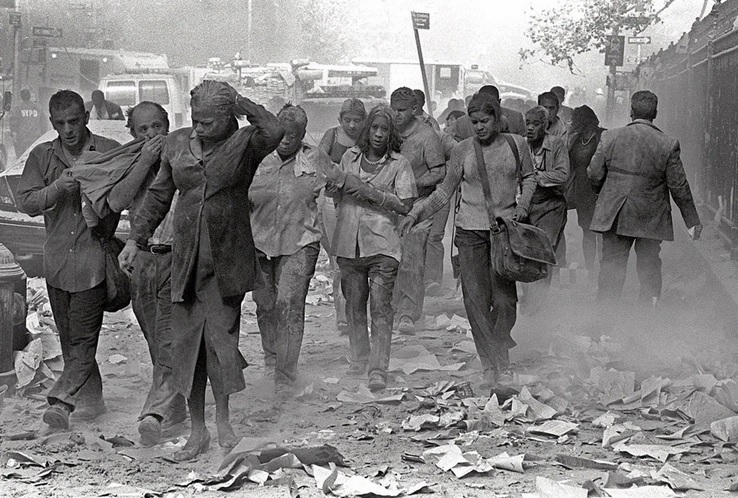
2,500 Ground Zero workers have cancer – 14 years later 9/11 attacks adverse health effects haunt people!
2,500 people who were at Ground Zero on Sep 11, 2001 have cancer! In its latest tally, the World Trade Center Health Program at Mount Sinai Hospital counts 1,655 responders with cancer among the 37,000 cops, hard hats, sanitation workers, other city employees and volunteers
The attacks of September 11, 2001 seem like yesterday but it has been 14 years since that fateful day in New York when two planes slammed into the side of the twin towers of the World Trade Center. The world would never be the same again, not only for America but even the rest of the world. But this article isn’t going to talk about the political or historical significance as important as those are, but talk about the health affects that haunt thousands who were at ground zero that fateful day. It begins with retired NYPD detective (New York Police Department) Barbara Burnette. She spent weeks at Ground Zero after 9/11 — shoveling away debris, first searching for survivors in the thick air and then sifting through the toxic wreckage to find the dead — have come to haunt her in ways far beyond the emotional trauma.
Burnette, lost her career and has become essentially homebound because of the debilitating lung disease she developed after 9/11. Eventually, I’m told, I’m going to need a double lung transplant,” said Burnette, 52.
Another story is that of,retired NYPD officer David Howley, who spent months at the World Trade Center site after the terrorist attacks. He’s been diagnosed with throat and neck cancer as well as other conditions. The cancer in his throat is unusual and rare among non-smoking Americans, but his doctor at the Rutgers University Clinical Center of Excellence — one of several local facilities treating and monitoring World Trade Center first responders — told Congress this summer that her clinic alone has seen eight other patients with Howley’s condition.
“Nobody that was down there got spared. If you didn’t get cancer, you have breathing trouble, or you have blood trouble or sinus troubles. Nobody got out of there unscathed,” said Howley, 55. After seeing his cancer recur four times, he has been in remission since surgery.

Health effects from 9/11
In the five months following the attacks, dust from the pulverized buildings continued to fill the air of the World Trade Center site. Increasing numbers of New York residents are reporting symptoms of Ground Zero respiratory illnesses. Various health programs have arisen to deal with the ongoing health effects of the September 11 attacks. The World Trade Center Health Program, which provides testing and treatment to 9/11 responders and survivors, consolidated many of these after the James Zadroga Act became law in January 2011.
Dr. Jhibu Thomas (MD, Internal Medicine) who is a resident of New York had this to say about the health affects following 9/11, “The events of 9/11 affected the lives of many in the NY and NJ areas, both physically and emotionally. What we know is that the rescuers and evacuated personnel have a myriad of respiratory illnesses with a steep decline in pulmonary function. PTSD has also deeply affected the rescue workers to this day.Other illnesses and cancers may still be found from the pollutants and carcinogens released. Morbidity data is still lacking though.The full health impact is still being studied.” On being asked where was Dr. Thomas was on that fateful day, he reminisces sadly, “I was taking a class in Chicago and was evacuated with thousands off others past the Sears tower as fighter jets flew over head. We all walked quietly and orderly.It was a horrible day!”
The James Zadroga Act: The Act covers medical and other expenses for a specific list of diseases and conditions. These include interstitial lung diseases, asthma, and gastroesophageal reflux disease. Since its creation, additional conditions have been made eligible- In September 2012, 50 different types of cancers were added, and in September 2013, prostate cancer was added to the list.
Fourteen years after 9/11, there are more than 70,000 patients enrolled in the World Trade Center Health Program, and nearly 21,000 of them are specifically getting treatment for conditions caused by the toxic and hazardous air following the terrorist attack, according to the program’s administrators. Researchers are still studying the devastating health impacts of 9/11. When the planes crashed into the towers, 24,000 gallons of jet fuel ignited a fire that spread to 100,000 tons of organic debris and 230,000 gallons of transformer, heating and diesel oils in the buildings, setting off a giant toxic plume of soot and dust from pulverized building materials. The programs in place are some reprieve to those like Burnette who are alive yet incurable and merely living on medication.
Original Story: NY Daily News, NY Post
Image Credits: The Roosevelts


